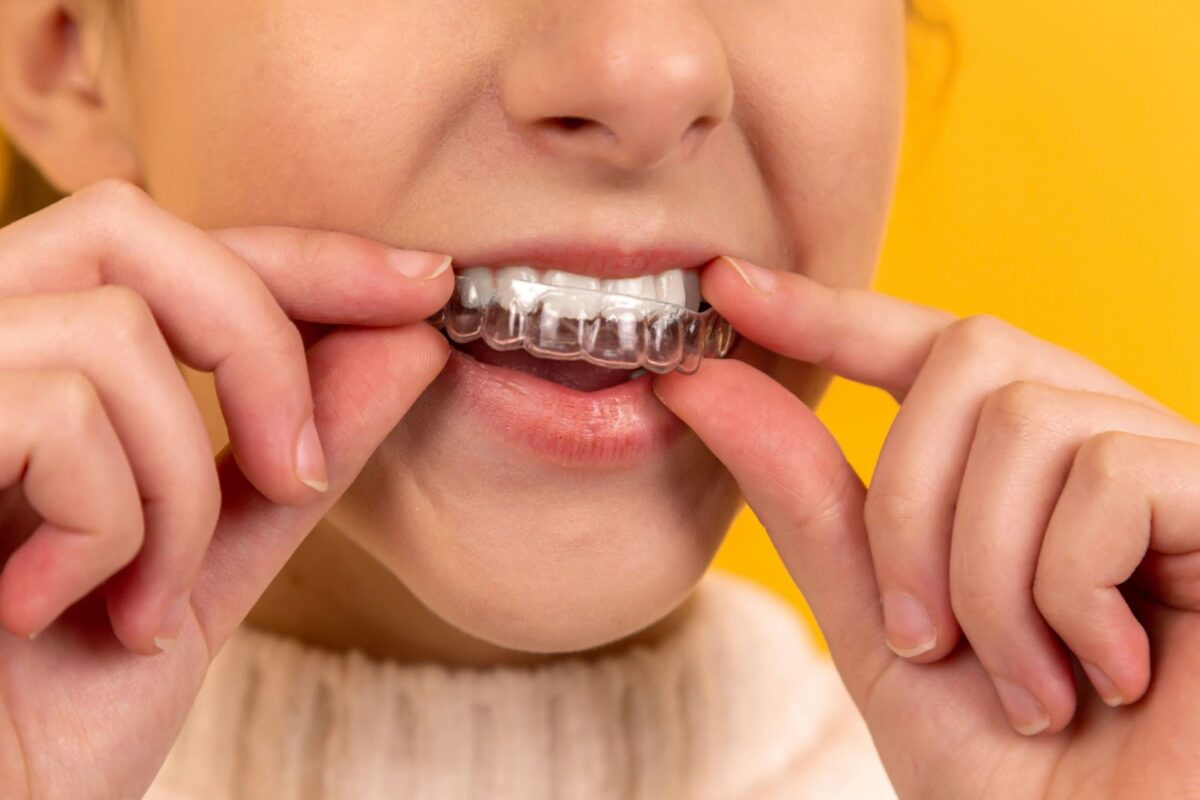Accessing this article, you are most likely to be wondering how to relax your jaw when sleeping. Many people, including myself, suffer from this problem that can be caused by numerous different causes.
Waking up with a sore jaw can be a sign of jaw tension, often caused by stress, anxiety, or sleep-related disorders like bruxism. This common issue can lead to further complications, including tooth damage and headaches.
Fortunately, there are ways to alleviate this condition and ensure a more peaceful and pain-free sleep. So today we will talk about not only how to relax your jaw when sleeping but also its causes, treatments and research on the topic.
Signs You Are Tensing Your Jaw While You Sleep
Recognizing jaw tension early can prevent discomfort and other complications. Look out for these signs:
- Morning Jaw Soreness or Fatigue: A clear indication of tension during sleep.
- Frequent Headaches: Especially in the temples, indicating overnight clenching.
- Teeth Grinding: Noticeable wear on teeth or reports from a sleeping partner.
- Sleep Posture: Misalignment while sleeping can contribute to tension.
- Changes in Dental Sensitivity: New sensitivities can be a sign of clenching.
Side Effects of Jaw Clenching
Jaw clenching can lead to various adverse effects if not addressed:
- Tooth Wear: Gradual erosion of the tooth surface from persistent grinding.
- Increased Sensitivity: Teeth become more sensitive to temperatures and sweets.
- TMJ (Temporomandibular) Disorders: Issues with the jaw joint can lead to pain and mobility problems.
- Chronic Pain: Persistent discomfort in the face, neck, and shoulders.
- Sleep Disturbances: Interrupted sleep due to pain or discomfort.
What Should You Do?
Identifying the cause of your jaw tension is crucial.
Whether it’s stress-related or due to a physical condition, addressing the root cause can significantly reduce or eliminate symptoms.
Simple lifestyle changes, mindfulness practices, and consulting with healthcare professionals can offer relief and long-term solutions.
How to Relax Your Jaw When Sleeping

Souce: Pexels
Several strategies can help relax your jaw and prevent clenching or grinding during sleep:
- Bruxism Exercises: Gentle jaw exercises can increase mobility and relieve tension. Stretching the jaw and practicing proper alignment can train the muscles to relax.
- Mindful Relaxation: Techniques like deep breathing, meditation, or progressive muscle relaxation before bedtime can reduce overall stress and relax the jaw muscles.
- Proper Sleep Hygiene: Ensuring a comfortable sleep environment and maintaining a consistent sleep schedule can improve sleep quality and reduce jaw clenching.
- Consultation: A healthcare professional or dentist can provide tailored advice, including the use of night guards to protect against grinding.
Treatments for Bruxism

Source: Unsplash
Beyond self-care practices, professional treatments for bruxism include:
- Night Guards: Custom-fitted mouthguards can prevent teeth grinding and protect the jaw from excessive pressure.
- Stress Management: Counseling or therapy can address the psychosocial factors contributing to bruxism.
- Physical Therapy: Targeted exercises and treatments can strengthen the jaw muscles and improve alignment, reducing symptoms.
FAQ: Frequently Asked Questions
In the following section, we address frequently asked questions about sleep bruxism and jaw clenching.
How do I stop my jaw from tensing in my sleep?
Implementing relaxation techniques and ensuring a comfortable sleep environment can help. Consider consulting a dentist for a custom night guard.
How can I loosen my jaw at night?
Gentle jaw exercises and stretches before bed can alleviate tension. Mindfulness and relaxation practices may also be beneficial.
Why can’t I relax my jaw at night?
Stress, anxiety, and certain sleep conditions like bruxism can lead to involuntary jaw clenching. Addressing these underlying causes is key to relaxation.
Why do I clench my jaw so hard when I sleep?
Clenching often results from stress or an unconscious response to misaligned teeth or jaw. Professional assessment is recommended to determine the specific cause and appropriate treatment.
This blog post aimed to provide readers with practical advice on how to relax their jaw when sleeping, addressing both the symptoms and underlying causes of jaw tension. We hoped we could help settle some questions on this matter.
For more detailed guidance, consulting with healthcare professionals is advised.
Disclaimer: The information provided in this article is for informational purposes only and is not intended to substitute for professional medical advice, diagnosis, or treatment.



